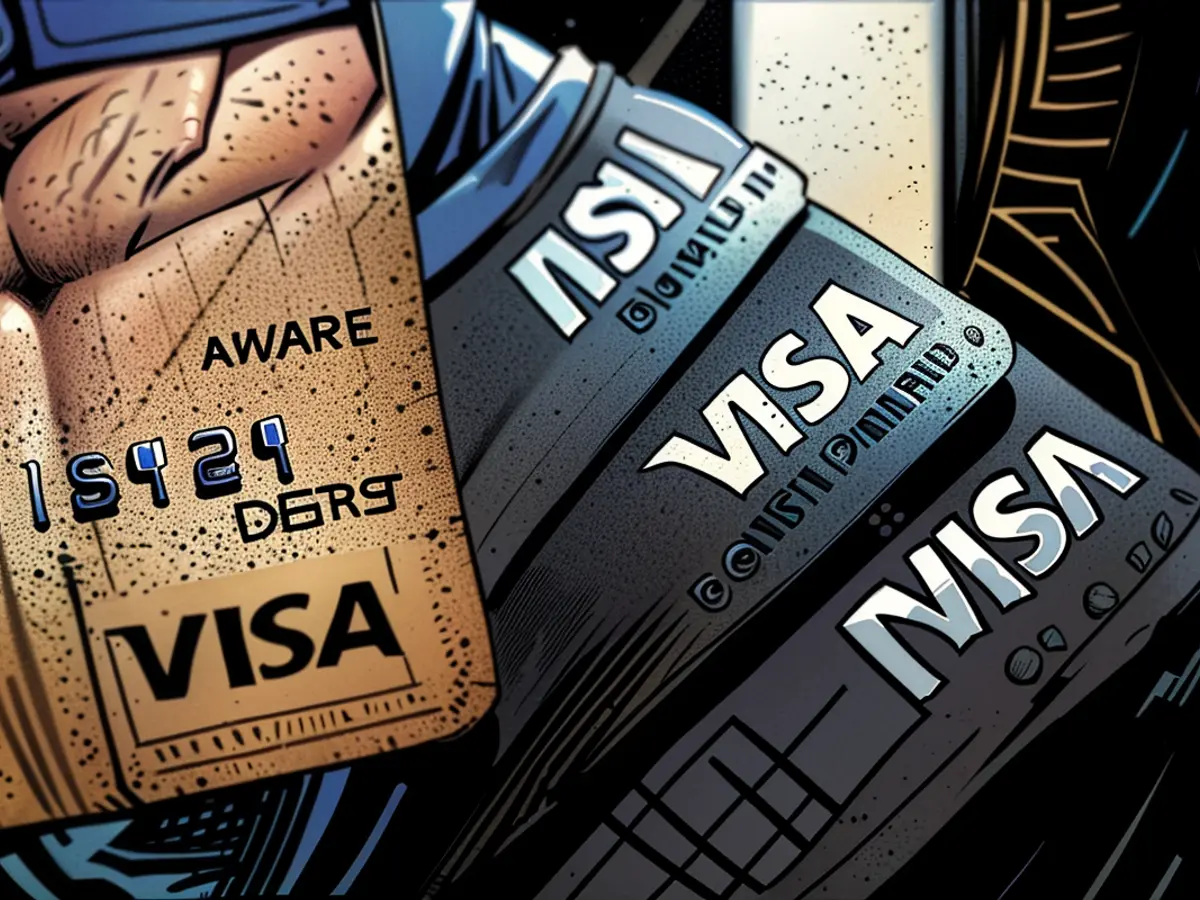The United States Department of Justice alleges Visa of engaging in an illicit monopoly, thereby escalating the cost of 'almost everything'.
For over a decade, as per the accusations, Visa has allegedly misused its stronghold in the debit card sector to force businesses to opt for Visa's network instead of rivals', and hinder new contenders from entering the market.
In an announcement, Attorney General Merrick Garland stated, "We allege that Visa has unjustly amassed the power to levy fees that significantly exceed what it could charge in a fair market." These fees are eventually transferred to consumers, either through price increases or decreased quality or services. Consequently, Visa's unlawful practices impact not just the price of a single item, but almost everything.**
CNN is requesting a response from Visa regarding the lawsuit.
Recently, the Department of Justice has taken significant actions. For instance, it filed civil suits against a real estate company that was said to have inflated rents nationwide and against Ticketmaster's parent company, Live Nation. Additionally, a judge ruled that Google violated antitrust laws with its search business.
This antitrust lawsuit against Visa is just three years after the Department of Justice attempted to prevent Visa from merging with financial technology startup Plaid. The $5.3 billion merger agreement was terminated, and the lawsuit was dropped.
According to the new complaint against Visa, filed in a federal court in New York, over 60% of debit transactions in the country occur on Visa's network. Visa reportedly earns more than $7 billion in processing fees from these transactions, as stated by the department.
To maintain its control, Visa imposes exclusivity agreements that penalize vendors and banks who want to process transactions through other systems, effectively shielding the company from competition.
"Visa also induces potential competitors to become associates instead of rivals by offering substantial financial incentives and threatening punitive extra fees," the Department of Justice said in a press release. "As the complaint alleges, Visa manipulated the competition because it feared losing market share, revenue, or being supplanted by another debit network altogether."
Merchants and retailers have consistently criticized credit card companies like Visa for allegedly charging excessive fees. In March, a group of merchants agreed to a settlement with Visa and Mastercard for $30 billion following a prolonged antitrust battle in court.
However, the National Retail Foundation, a retail trade association, campaigned to reject this settlement, arguing that it provided insufficient compensation to stores using Visa and Mastercard's payment terminals. In June, a federal judge rejected the settlement, stating that the credit card companies needed to make additional concessions to resolve the dispute.
In response to the allegations, Visa could potentially argue that its business practices are standard within the competitive debit card sector. Despite the Department of Justice's assertion that Visa manipulates competition and imposes exclusivity agreements, Visa may claim that such practices are necessary to maintain its business in a cutthroat industry.








